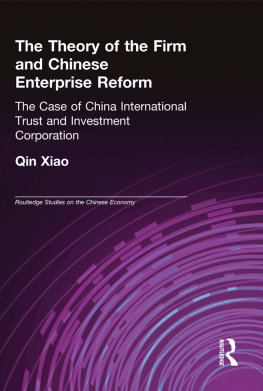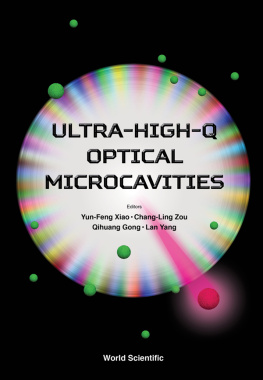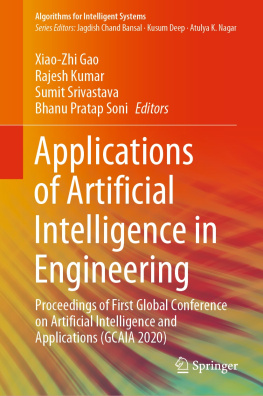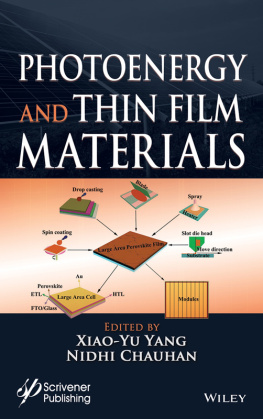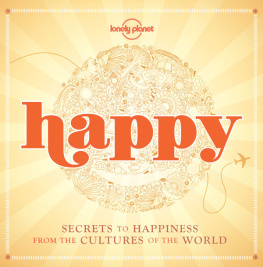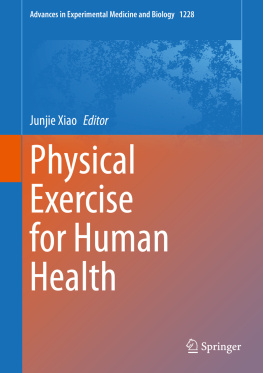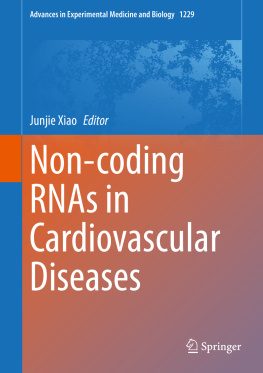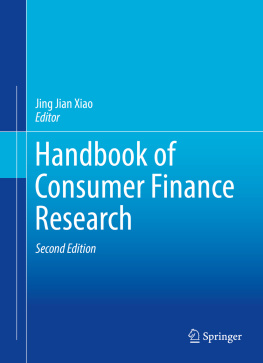

1986 by the University of Washington Press
New preface 2015 by the University of Washington Press
Printed and bound in the United States of America
18 17 16 15 5 4 3 2 1
All rights reserved. No part of this publication may be reproduced or transmitted in any form or by any means, electronic or mechanical, including photocopy, recording, or any information storage or retrieval system, without permission in writing from the publisher.
UNIVERSITY OF WASHINGTON PRESS
www.washington.edu/uwpress
LIBRARY OF CONGRESS CATALOGING-IN-PUBLICATION DATA
Xiao, Hong, 19111942.
[Shang shi jie. English]
Market Street : a Chinese woman in Harbin / Xiao Hong ; translated and with a new preface by Howard Goldblatt.
p. cm.
Originally published: Seattle: University of Washington Press, 1986.
ISBN 978-0-295-99423-9 (pbk. : alk. paper)
1. Xiao, Hong, 19111942Fiction. I. Goldblatt, Howard, 1939II. Title. III. Title: Chinese woman in Harbin.
PL2740.N3S4513 2014
895.13'5dc23
2014019721
The paper used in this publication is acid-free and meets the minimum requirements of American National Standard for Information SciencesPermanence of Paper for Printed Library Materials, ANSI Z39.481984.
ISBN 978-0-295-80566-5 (ebook)
ACKNOWLEDGMENTS
The following friends and colleagues read all or part of this translation, in one form or another, sharing with me their interpretations and opinions, keeping me properly humbled with their criticisms, and occasionally intoxicating me with their praise: Tani Barlow, George Cheng, Ruth Keen, Gretchen Swanzey, Noric Taschian, Brenda Webster, Roger Williams, and Ellen Yeung, as well as two anonymous readers engaged by the press. I thank them, one and all.
H.G.
TRANSLATORS PREFACE TO THE 2015 EDITION
IN the summer of 2011, the Harbin chapter of the Chinese Writers Association, in collaboration with other local organizations, sponsored an international conference on the life and works of the Chinese novelist Xiao Hong on the hundredth anniversary of her birth. The conference, which I attended, was held in the town of Hulan, a few miles north of the capital of Heilongjiang Province. While there, the conference attendees were taken to the childhood home of this writer, who is now celebrated as a national treasure. I was disappointed to see that it had been turned into a glitzy shrine, obliterating the character of the old-style home I had first seen more than thirty years before. We also visited the newly constructed and not especially well conceived Xiao Hong Museum (where a piece of my amateurish calligraphy now hangs) and a monument where we laid flowers in a solemn and blessedly brief ceremony. My earlier visits to Hulan had been more enjoyable. This includes my first trip, when the Jeep in which I was riding was swarmed by curious residents who had not seen an occidental face in a long time, if ever. I also made an unannounced visit to the onetime Dragon King Temple, now an elementary school, where Xiao Hong had been a student; a little boy, equally unannounced, presented me with his dog-eared textbook, in which a story by one of the towns star residents appeared. It remains one of my treasured keepsakes.
But in 2011, I was more interested in Harbin, the setting for the evocative book Market Street: A Chinese Woman in Harbin. The city has changed, but not as much as the coastal cities have. It has a new metropolitan flavorperhaps a throwback to the Russian days of the early twentieth centuryand fancy malls, and a more modern-appearing populace. And yet the sort of run-down locales I found so interesting still existmore run-down than everand include relics of the once-thriving Jewish population. We conferees were put up in the Hotel Moderne, which had Russian character and few modern conveniences. I had lived as an exchange scholar in Harbin for a year in the mid 1980s, a transitional period for this northernmost large city in China, and I recall the period as one of the highlights of my professional career (and the coldest).
On my first visit, back in 1980, I had been accompanied by a host of bureaucrats and some of Xiao Hongs surviving friends, acquaintances, and even lovers on a dizzying introduction to a place I had written about but never seen. I asked, and was permitted, to see the tiny apartment on Market Street in which the narrator briefly lived. There she had recounted the sometimes significant but often trivial details of life with her lover before leaving what was once known as Manchuria for Shanghai and other cities under attack by the Japanese; ultimately, she fled to Hong Kong, where she died at the age of thirty (or thirty-one) shortly after the city fell to the invaders.
Thanks to the University of Washington Press, this remarkable book, which was first published in translation in 1986 and was well received by the reading public before going out of print, has been given a new life. We have decided to reprint it just as it was, with the original introduction but a new cover. (While unspectacular, the original cover was my snapshot of the hovel in which the narrator lived.) Xiao Hongs novels are still available in English and, ideally, should be read along with this beautifully nuanced self-portrait, for it is the sort of writing that never grows old.
TRANSLATORS INTRODUCTION
I should not talk so much about myself if there were anybody else whom I knew as well.
HENRY DAVID THOREAU, Walden
The only thing we can do, said Banaka, is to give an account of our own selves. Anything else is an abuse of power. Anything else is a lie.
MILAN KUNDERA, The Book of Laughter and Forgetting
AUTOBIOGRAPHY AND FICTIONthe boundaries shift, grow hazy, merge, and separate. We are all, of course, giving an account of our own selves whenever we write, whenever we speak, whenever we act. Yet as readers we have a feeling that autobiography, however indefinably, differs from other accounts. It is both more and less revealing of its creator, and it belongs simultaneously to the realms of conscious manipulation and subconscious exposition. It presents the authors life story, in part or in whole, as a search for personal identity, a means of self-justification or self-aggrandizement, or a complement to other personal endeavors, including creative writing. This reworking of ones own significance, this sincere project of recapturing and understanding ones own life, distinguishes autobiography from the novel. A novelist, in writing his or her autobiography, gives an account of the self not only as an individual living in the world but also as a creative writer. What may be termed an artistic (or imaginative) autobiography, therefore, attains that status partly as a result of the authors linguistic and structural sophistication, and partly through his or her application of literary techniques and devices used in the creation of fiction.
Market Street [Shangshi jie] is a work that could be (and has been) mistaken for a series of autobiographical essays or for a piece of fiction. It is, however, the story of the authors life during a specific period of time. It is thinly disguised as fiction (as in the use of pseudonyms for the narrator and her lover), and suggests a fictional style, owing to the selection and ordering of materials and the nature of the telling. Yet, given the known facts of Xiao Hongs life, including statements by contemporaries who figured prominently, both in her life and in





